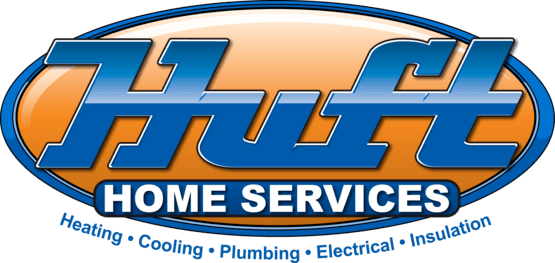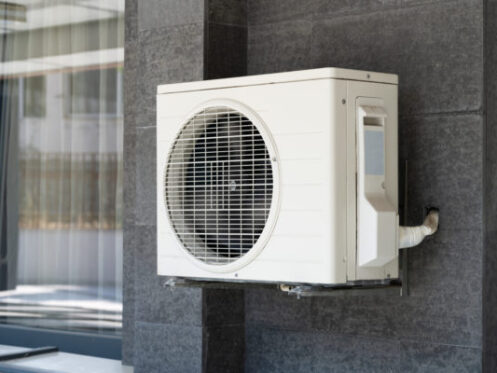The compressor is the heart of the cooling mechanism of your heating, ventilation, and air conditioning (HVAC) system. Because it represents such a vital component of the HVAC system, it is understandably alarming if the compressor suddenly stops working. Not only can compressor problems result in a non-functioning air conditioner, but fixing the worst problems can also put a dent in your wallet. Fortunately, there are distinct causes and signs that warn property owners that a compressor may fail. A look at the main causes of compressor failure can help you plan HVAC maintenance and keep your system working at the optimal level.
What Does an HVAC Compressor Do?
Compressors are vital parts of HVAC systems. A compressor is responsible for squeezing the molecules of a cooling substance known as refrigerant. This compression process allows the refrigerant to easily flow through your HVAC system. High-quality compressors can last 10-15 years with appropriate maintenance care. However, neglecting maintenance can shorten the lifespan of a compressor. Contaminants like dust, debris, or old refrigerant leaks can cause the compressor to become dysfunctional. It is best to schedule consistent HVAC maintenance to ensure that the compressor remains in great shape. Failure to do so can result in the need for emergency repairs, and the worst-case scenarios can require complete replacement.
How Does an HVAC Compressor Work?
In nature, heat flows from areas of high temperature to areas of lower temperature. The HVAC compressor is a mechanical device that helps this natural rule work to your advantage. First, the liquid known as refrigerant collects heat from your HVAC system’s evaporator. The refrigerant then flows to the compressor. Your HVAC compressor squeezes or constricts the refrigerant, thereby decreasing its overall volume. The act of compression causes the temperature of the refrigerant to rise, and the combination of heat and pressure converts it into high-pressure gas. This high-pressure gas flows to the condenser coils to transfer its heat, and the condenser coils release this heat to outdoor units so that it can evaporate outside. The now-cooled gas converts back to liquid and can flow back inside to the indoor unit. This process repeats over and over to ensure a complete refrigerant cycle.
What Are the Warning Signs of HVAC Compressor Failure?
Given the important role that HVAC compressors play in your refrigerant cycle, it is important to learn the factors that can indicate compression dysfunction or failure. Common signs of impending failure can include:
- Reduced or weak airflow from units
- Loud banging sounds
- Leaking refrigerant
- High electricity bills
- Frequent on-and-off cycling
- Tripping circuit breaker
It is important to contact an HVAC professional if you notice any of the warning signals. An HVAC services company can perform a thorough checkup of your system. These professionals can diagnose early problems before they escalate or provide major repairs for more challenging issues.
What Causes an HVAC Compressor to Fail?
HVAC compressor failures typically occur due to an internal problem that compromises the performance of the unit over time. Since the problems are internal, most homeowners will need to contact an HVAC technician to troubleshoot the issue to ensure that your system can return to good working order.
Electrical Failure
Electrical problems can arise from damaged or corroded contactors, wires, or fuses. These problems can also result from power surges or amp issues. Electrical malfunction can cause acid and oxidation to accumulate in the HVAC system. For this reason, a trained professional can usually test for acid or oxidation buildup during compressor inspections. Technicians can sometimes fix wiring, fuses, or circuit contactors before problems spiral out of control. A technician can also determine whether electrical damage has caused burnout that requires complete replacement altogether.
Blocked or Damaged Condenser Coils
There are two sets of coils that help transfer heat through your HVAC system. Over time, these coils can clog with dirt, dust, grime, or mineral deposits. In instances of extreme weather, these coils can even clog with ice. Unfortunately, a dirty or frozen condenser coil cannot expel heat properly. This causes the system to put undue pressure on the compressor. If you continue to run your system under these conditions, your compressor can eventually burn out. Regular HVAC maintenance can remove known substances that build up on condenser coils.
Incorrect Refrigerant Levels
Improper refrigerant levels can also cause a compressor to fail. Your HVAC system cannot work properly when refrigerant levels are either too low or too high. It is a common misconception that refrigerant levels simply decrease over time. The compressor processes refrigerant in a complete cycle. Low refrigerant levels are usually the result of a leak in your refrigerant lines. They can also occur due to an insufficient charge from a previous technician. Excess refrigerant levels can occur when an inexperienced technician overfills refrigerant beyond manufacturer-recommended quantities.
The wrong refrigerant levels can alter the pressure of a system. Insufficient refrigerant decreases the pressure, causing the compressor to work overtime to push the refrigerant through the system. Because this is unsustainable, the compressor itself can eventually fail. Too much refrigerant increases the internal pressure. This can eventually lead to compressor blowout. Instead of trying to adjust refrigerant levels yourself, it is always best to work with an HVAC expert who can ensure the right amount is in your system.
Compromised Suction Lines
Issues with suction lines can create major problems for your compressor. Suction lines with cracks, holes, or blockage can hinder refrigerant flow in the system. This causes the compressor to work harder in order to pump enough refrigerant through the system, and it can result in a premature breakdown. You may notice weak airflow or decreased cooling capacity due to this inability to complete the refrigerant cycle.
In addition to damaged suction lines, incorrect suction line size can also cause problems with your compressor. Suction lines that are too long or too short can build pressure and overheat the system. Units can end up with incorrect suction lines if an inexperienced person attempts to install or replace these parts. If you need new suction lines, it is important to contact an HVAC expert who can identify the right part for your unit.
Inadequate Lubrication
HVAC systems require lubrication to function correctly. Inadequate lubrication increases the risk of wear to the system’s internal parts. Specifically, low lubrication levels cause the compressor components to scrape and rub against each other. Eventually, the smaller parts can loosen or fall off the compressor completely. This can shorten your unit’s lifespan. Low lubrication levels can result from irregular maintenance or leakage from the evaporator, condenser, piping, or compression shaft seal. Fortunately, an HVAC professional can service your unit by checking lubricant levels, testing the oil pump, and making repairs as needed.
Contaminants to the Outdoor Unit
Outdoor contaminants can enter your outdoor unit and create problems for your compressor. Pollutants such as dirt, dust, debris, leaves, soot, moisture, or even animal droppings can damage the outside unit. This damage can compromise the last step of the refrigerant cycle. Contaminants like acid or excess air can also disperse refrigerant in the condenser. This raises the temperature within the compressor and can make oil carbonize on the discharge valve. When oil carbonizes, it produces residue that can cake up and cause the valve to leak. Eventually, this leaking valve will take a toll on your compressor. You should reach out to an HVAC service technician at the first sign of contaminants or pollutants.
Contact Us Today
The compressor is an indispensable part of your HVAC system. Because compressor failure can cause the entire system to break down, it is important to let the experts fix any emergencies. Huft Home Services provides HVAC expertise for properties in Sacramento, El Dorado, Placer, San Joaquin, Solano, Yolo, and Yuba counties. We offer unit inspection, maintenance, and repair or replacement for all compressor emergencies. We also work on your other heating, cooling, and plumbing projects. Contact Huft Home Services today to help your system work at its best.




